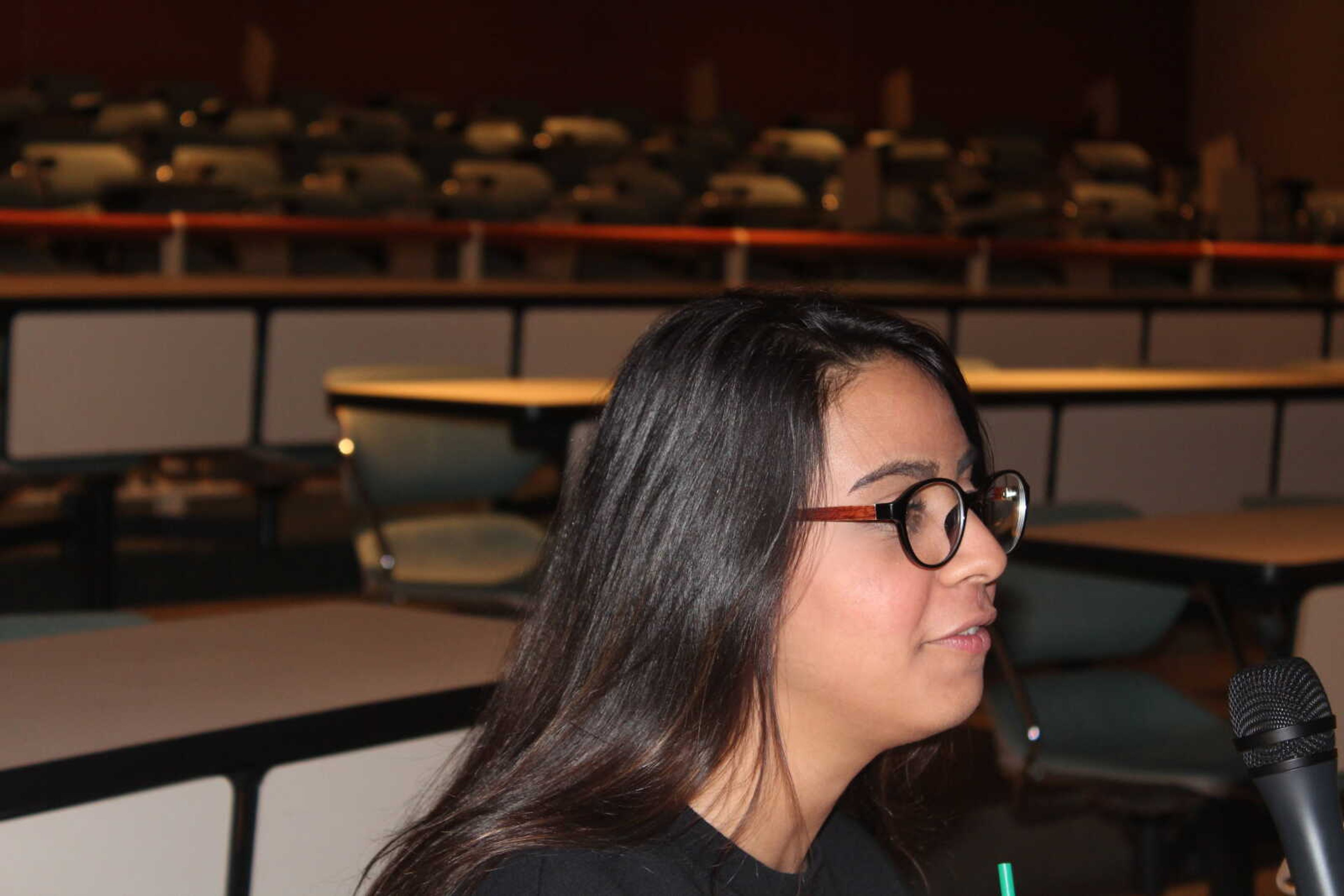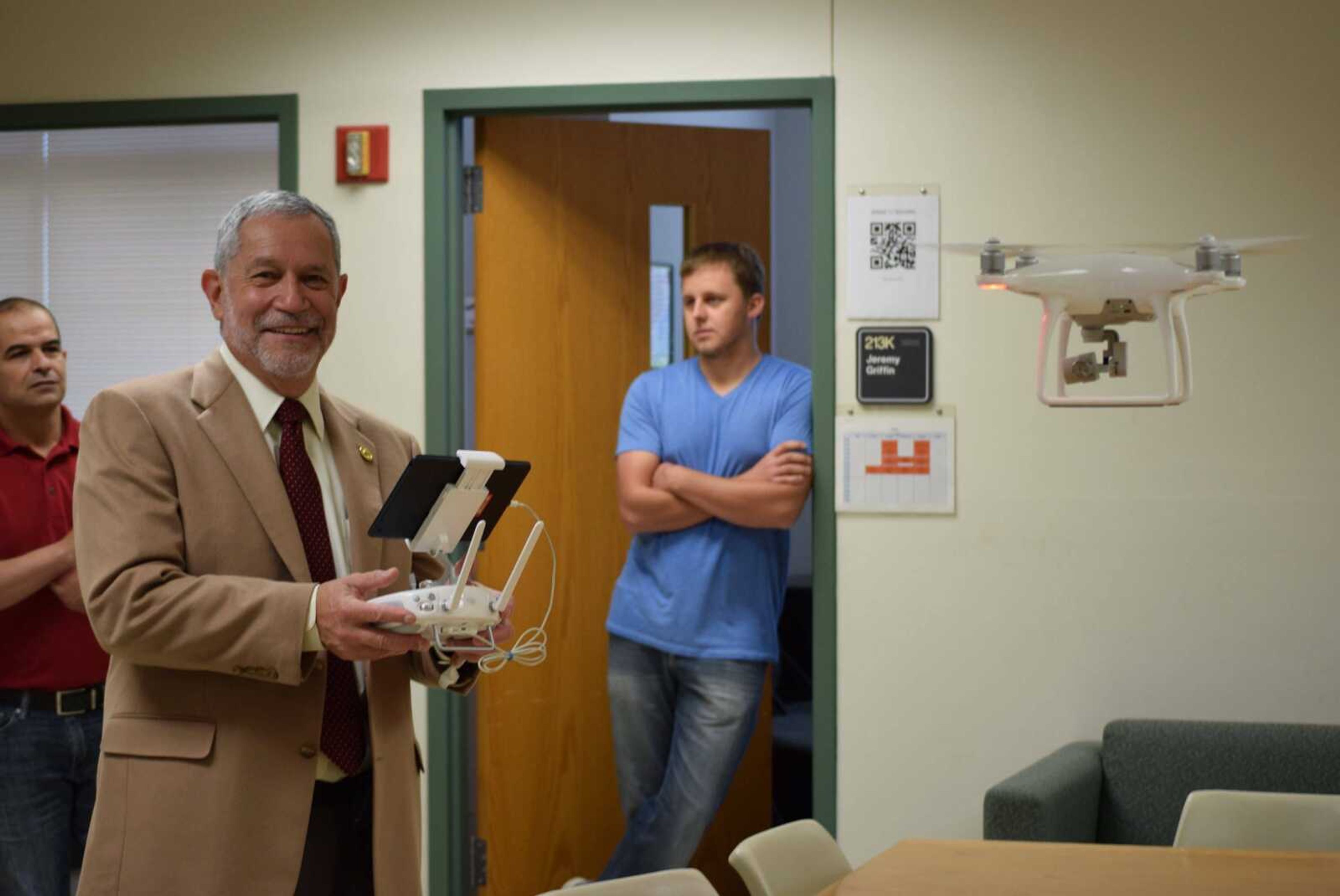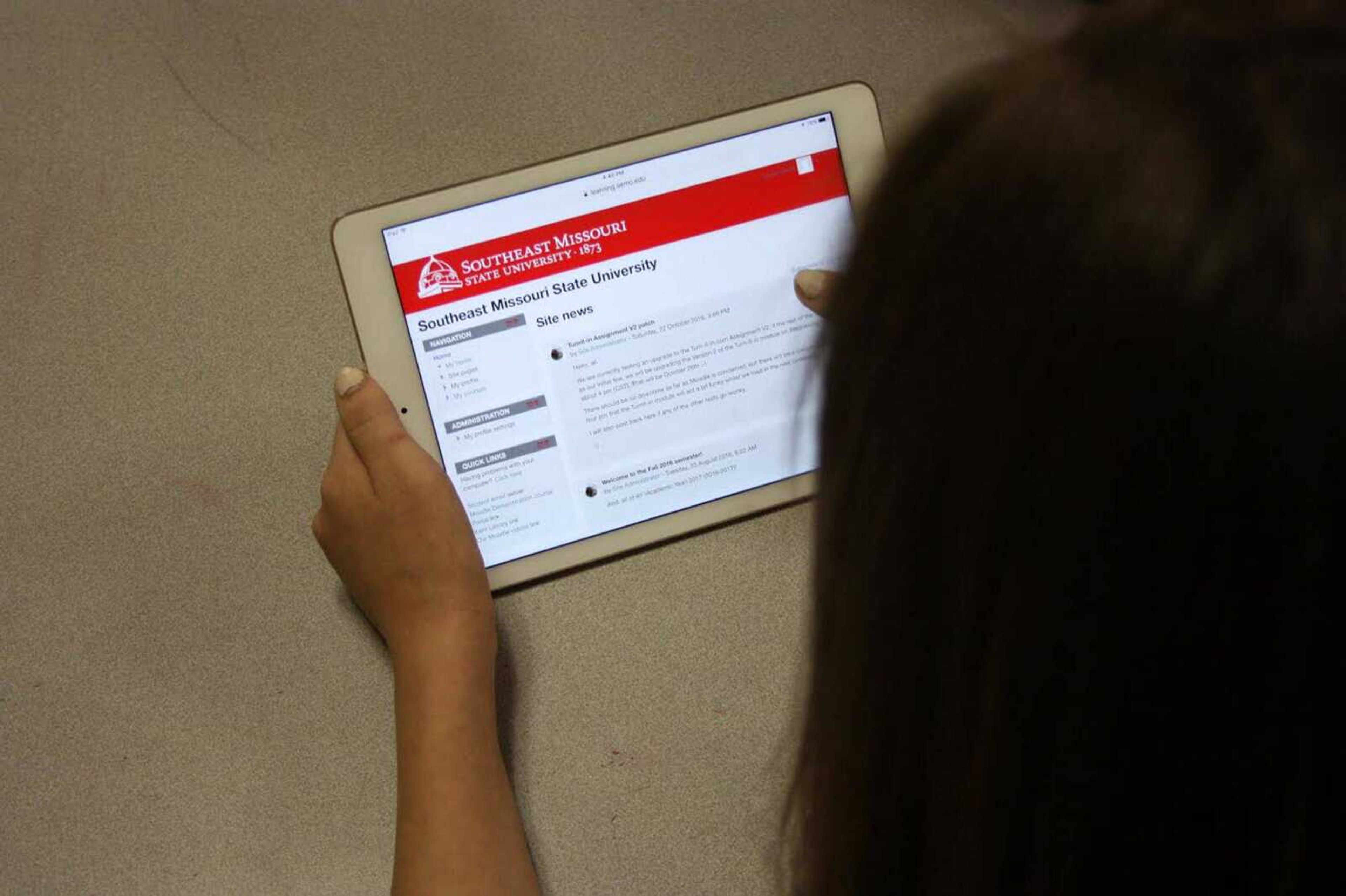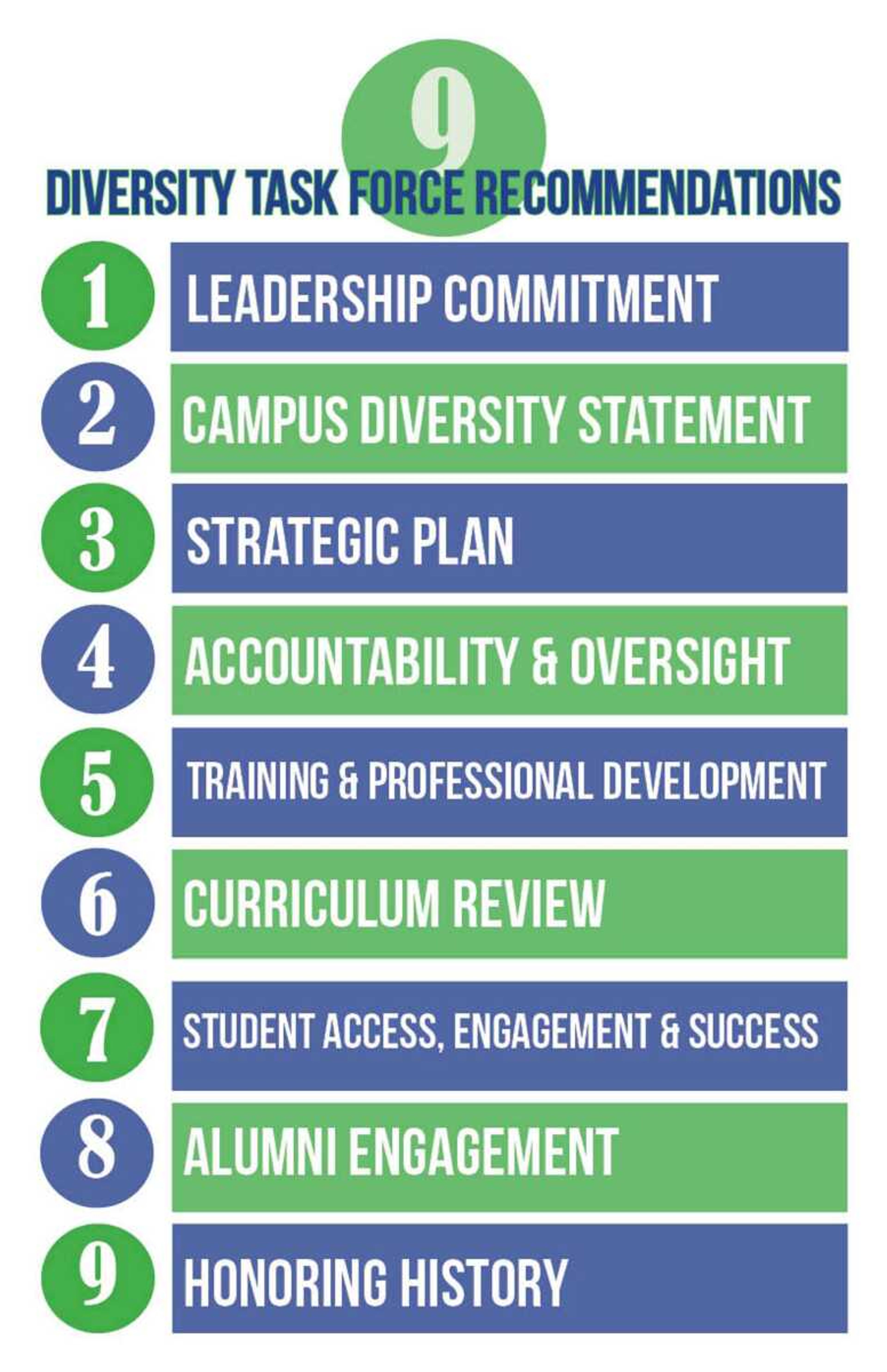Southeast keeping up with industry technology
For many professionals, new technologies bring the chance to accomplish goals faster, more efficiently or just in new ways. For others, new technologies disrupt their traditional business models and may be treated as challenges rather than opportunities...
For many professionals, new technologies bring the chance to accomplish goals faster, more efficiently or just in new ways. For others, new technologies disrupt their traditional business models and may be treated as challenges rather than opportunities.
Dr. Gerald McDougall, dean of Southeast's Harrison College of Business, said technology in the professional world presents interesting dynamics in the ways current students must be prepared for their careers.
"Technology is pervasive," McDougall said. "When there's advances in technology it's disruptive, at least in the short run. In the long run, it requires us to redesign our processes and the way we interact with our internal constituencies, with our customers, our supplies. We are just entangled by technology."
McDougall said current technology and technology use allows for the collection of massive amounts of data, which businesses must correctly translate and use in the most effective way possible.
"But data is not useful," McDougall said. "Information is useful. And the challenge is, how do you translate data into information? And then once you have the information, how do you transfer it to the decision-maker?"
Over the last two years, the core of the business degree underwent review. This process ensured students were leaving the program with a core set of skills valued by employers in the business world.
"And part of that, we went out and talked to the consumer of our product, the business community," McDougall said. "Without a blink and consistently what they told us was that people coming out with a business degree need more advanced Excel skills."
As concrete technological skills are observed and identified, the task of faculty becomes one of using the best methods to equip students with the strengths they'll need once they graduate.
"And then, of course, the delivery of instruction," McDougall added. "How do we now promote the success of students so it's the outcome that is most beneficial for that student, that graduate? Now we're looking at the impact of technology on instructional strategies, and we're still challenged by that."
Dr. Diana Rogers-Adkinson, dean of Southeast's College of Education, said technology is giving educators the chance to view curriculum in a more full, organic way than was perhaps possible before.
"The fascinating part about teacher education is how technology is being infused across the curriculum and across disciplines," Rogers-Adkinson said. "So it's really being used to help children be more broad thinkers and creative thinkers."
Perhaps more than other fields, educators must also overcome outside attitudes toward the way they make use of technology, particularly in the way an educator decides to integrate technology into elementary or secondary curriculums.
"The biggest criticism you always hear in education is that teachers use technology too much as just a toy," Rogers-Adkinson said. "You know, babysitting kids, putting kids in front of a computer. When people are talking about that, then they have a really flat understanding of curriculum and what you can do -- be it virtual field trips or kids learning how to do the design for a print for a 3-D printer and have to create the things they're studying about and better understand design principles. So it's a very different way of thinking about it."
Rogers-Adkinson said the College of Education stays on top of growing technological trends, oftentimes actually integrating new devices and methods before most Missouri school districts have. For example, the College of Education recently opened a "maker's studio," which includes a 3-D printer. Rogers-Adkinson said there are perhaps a dozen or fewer schools in Missouri with such facilities, but Southeast's education graduates will have experience and exposure to the technology, should the technology become more widely available.
Perhaps most directly affected by new technology is the College of Science, Technology and Agriculture. Dean Dr. Chris McGowan said this direct expectation of and contact with new technological advances allows faculty and students of the sciences to more easily accommodate change.
"We're used to seeing technological changes take place in the sciences all the time," McGowan said. "So we're not surprised when new things come along and we try to adapt to them. We're very accepting of new technology, so we're not worried about missing the beat somewhere. We're really ready to move on it."
With the recent major additions of Unmanned Aircraft Systems and Geographic Information Science, McGowan said the college also is developing a program focused on the changing landscape of industrial distribution.
"Most companies now don't keep inventories, they have 'just in time' inventory delivery," McGowan said. "So Industrial Distribution -- getting a part that's in New Orleans to the floor in Perryville -- is a task. And so that's what this is developed around."
The deans each mentioned ways that new technologies, while disruptive, allow for increased dialogue and interaction between disciplines, age groups and cultures.






